If you live in the US, you know that having a good credit score can open many doors for you, and set you up for financial success. I have been in the USA for fifteen years and I learned this lesson the hard way. Credit is not something kids are taught about and, maybe because it is not something adults even consider.
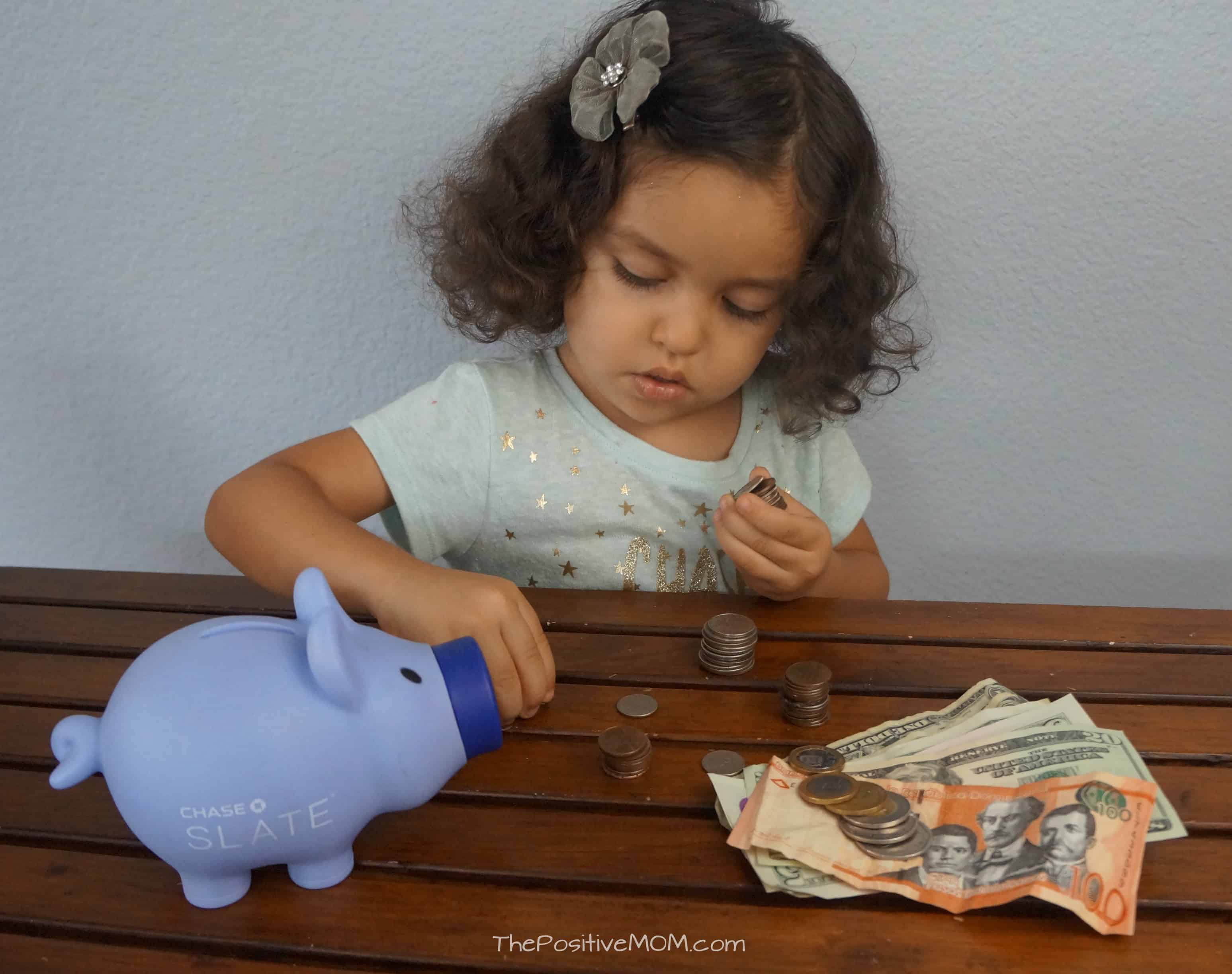
When I found myself desperate, scared, and alone as a new single mom, many doors were automatically shut because I didn’t have credit history and I didn’t even know how to begin to build and improve my credit score. This was such a defining moment in my life that I wished I had learned this lesson much earlier. I figured that having education in this are would have saved me a lot of pain and that’s why I’ve partnered with Chase Slate, as a member of the Mom It Forward Influencer Network, to chat about the why, when, and how to talk to your kids about credit.
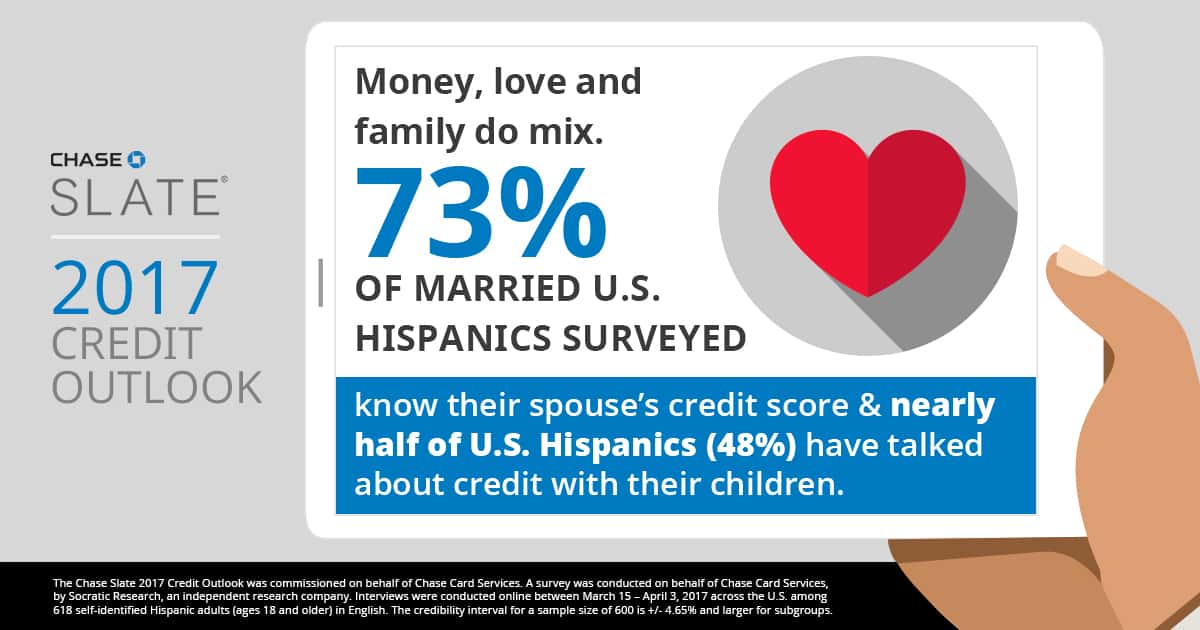 There’s a Chinese Proverb that reads: “The best time to plant a tree is 20 years ago. The second best time is now.” So while I couldn’t change my childhood, my past, or what I had or hadn’t learned, I decided to be proactive and not only become empowered with financial education, but to also teach it to my kids as soon as they could understand. Findings and data points of the 2017 Chase Slate Credit Outlook Survey reveal that I’m not alone as Hispanic mom in wanting my children to learn about credit early on. That is great news.
There’s a Chinese Proverb that reads: “The best time to plant a tree is 20 years ago. The second best time is now.” So while I couldn’t change my childhood, my past, or what I had or hadn’t learned, I decided to be proactive and not only become empowered with financial education, but to also teach it to my kids as soon as they could understand. Findings and data points of the 2017 Chase Slate Credit Outlook Survey reveal that I’m not alone as Hispanic mom in wanting my children to learn about credit early on. That is great news.
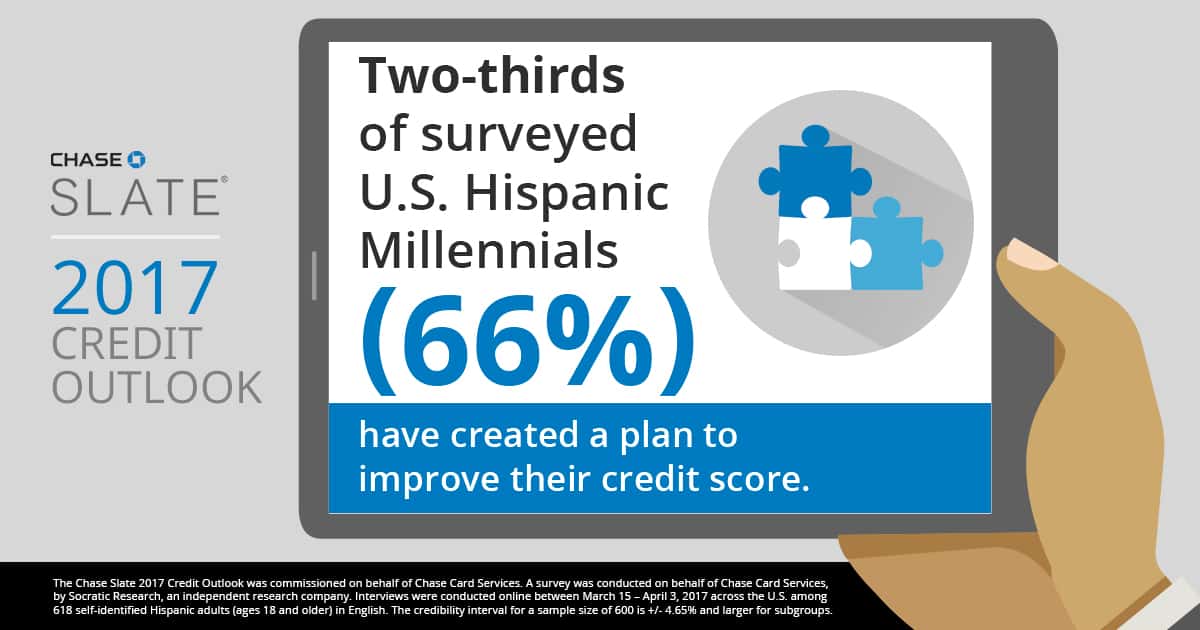
I remember how scared I was when I got my first credit card, yet it turned into an empowering feeling because I knew it was a tool to get access to financial products and services I needed to improve my financial situation as a single mom living below poverty levels.
According to the Chase Slate 2017 Outlook Survey, less than half of Hispanics (47%) are very satisfied with their credit score compared to 55% of Americans nationally who have checked their credit score, but 72% of Hispanics would like to improve their credit score and more than half (57%) have a plan to do so. They are more likely to be motivated to check their credit score out of specific financial concerns rather than because the information is provided as a free service. Yes, we love free – and you can’t blame us!
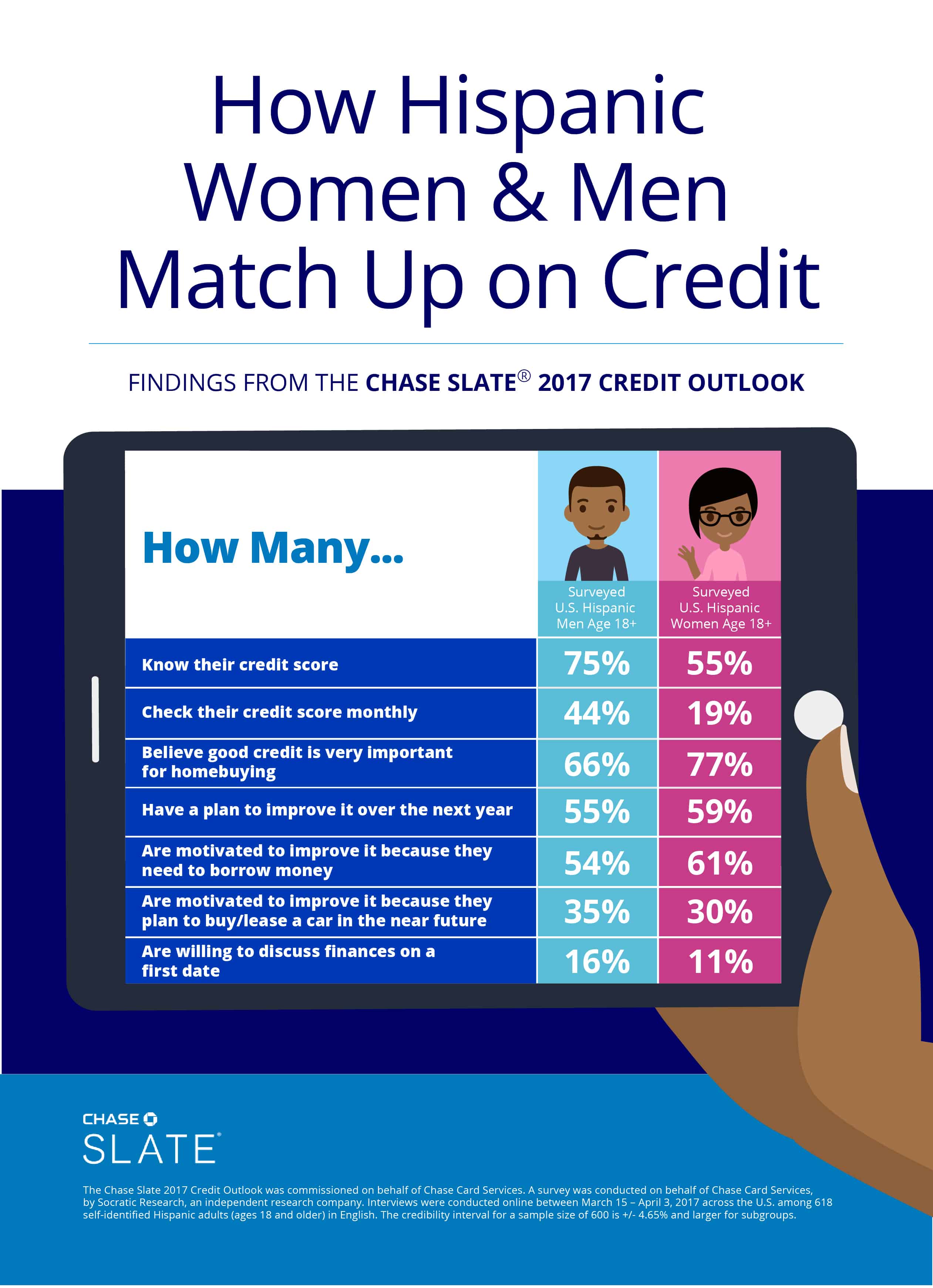
I love hearing that Hispanic Americans are optimistic about improving their credit score this year. As a culture, we are not about wishful thinking – we plan and we execute those plans with diligence, passion and determination.
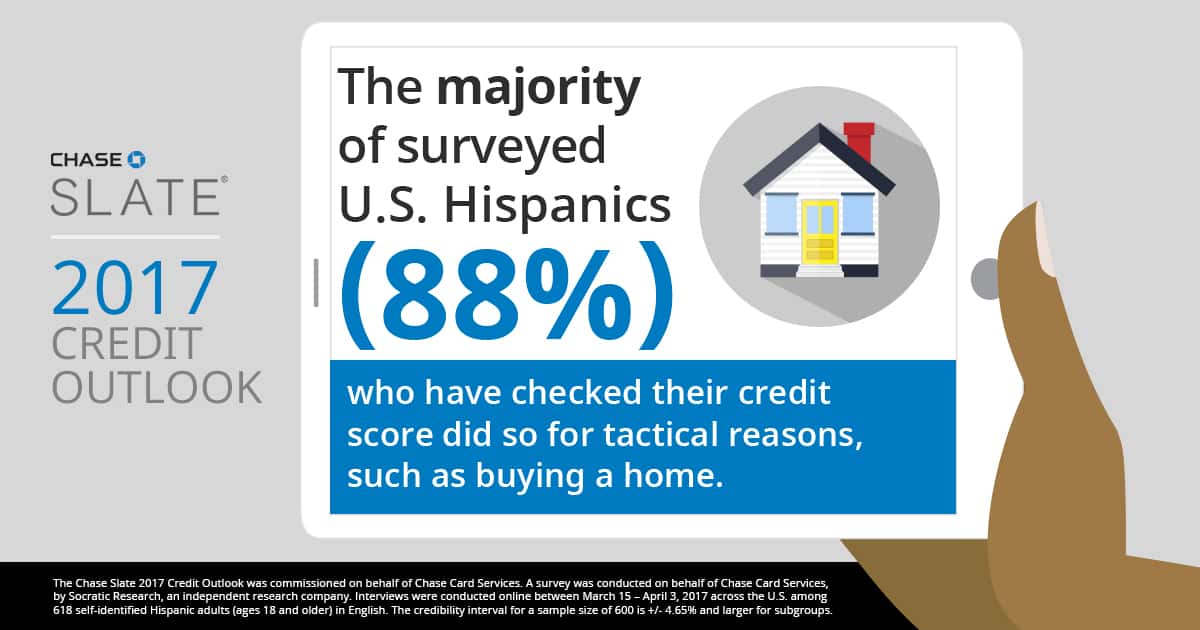
Some other key findings from the Chase Slate Credit Outlook Survey highlight that:
- Hispanics are checking their credit score for tactical reasons.
- Money and love do mix. In relationships, most Hispanics believe that having credit transparency in the couple is important
- Hispanic Millennials are the most motivated to improve their credit scores.
- Putting credit improvement plans into action.
- Hispanic parents want their children to learn about credit.
I can relate to all of these. My first marriage didn’t just end in a disempowering way, it was financially abusive, as well. There was zero transparency when it came to money and credit was not ever mentioned. I’ve been remarried for almost five years now and I found out early on that my husband’s credit score was at a record low and that he wasn’t taking any steps to improve it – he was actually making it worse.
These experiences have actually helped me frame the money talk in a powerful way to my children, because though I’ve been able to make it as a mompreneur and they weren’t impacted negatively, I’ve stressed that they could have if I wasn’t proactive in checking, improving, and taking advantage of my credit score throughout the years.
Why Talk To Your Kids About Credit
Imagine you don’t talk to your kids about credit: they go on their own and can’t get a college loan, can’t buy a car, can’t buy a home through a mortgage loan. They create negative debt using their credit cards because they don’t understand how credit works and the impact of negative activity. When they realize this, it will take years before the negative marks and delinquencies to go off their credit history…
What you feel right now is why you talk to your kids about credit. It is your duty as a mom to let your children know that their credit choices can determine their financial future.
When you talk to your kids about credit AND they listen, mortgage lenders, banks, credit card issuers, auto lenders, landlords, insurance companies, potential employers, etc. can assess your child as a desirable candidate, and this low risk can result in qualifying for lower interest rates, too. Most importantly, your children understand how money works and how to make it work for them in an effective, responsible, and healthy way. Need I say more?
When To Talk To Your Kids About Credit
The money ed 101 lessons started quite early for the EF girls (my daughters). I was raised in a slum so I was money conscious ever since I can remember, because it was the reason we lived there and didn’t have what most kids had. I wanted my kids to be money conscious in a different way: to know its value because they are grateful, not because they are lacking.
My kids have had a savings account as soon as they are born and get a SSN, and I’ve been teaching them money since they understood numbers and math. Teachable moments just show up when we have everyday conversation when we notice how much things cost or when we determine whether something is budgeted or not, or distinguish between what the girls want and what they need. I take advantage of each so they know how to handle money now and into adulthood.
Financial education for kids doesn’t stop at “earn, save, don’t get into debt.” Make sure you are being proactive in teaching them about healthy debt and how credit works, so they can establish a positive financial history from the start. We tend to procrastinate talking about credit because we see it as necessary in the future; however, money habits are learned early on and studies have said that beliefs about money are locked in by age seven! If your kids are older than seven, remember the proverb of the tree!
How To Talk To Your Kids About Credit
The best way to teach your kids about credit is to not just talk to your kids about credit but to narrate and explain what you are doing and why you are doing. And with credit, just as with pretty much anything in life, it’s not what you say, but how you say it.
Maybe you feel inadequate to talk about money (or even math, like me!) and you just don’t feel qualified to teach them about the subject, especially because you’ve made mistakes around credit that you are feeling ashamed about. Well, the energy and emotion with which you say what you say about money, credit cards, wealth, etc. is always going to weigh more than how versed and eloquent you are on the subject.
With that being said, you want to have a calm, positive, and clear conversation that focuses on their awareness and understanding. In my conversations with my children, I always let them know I have these talks with them because I love them and I want them to be as self-reliant as they can in all stages of their lives, because that provides them with peace of mind and freedom.
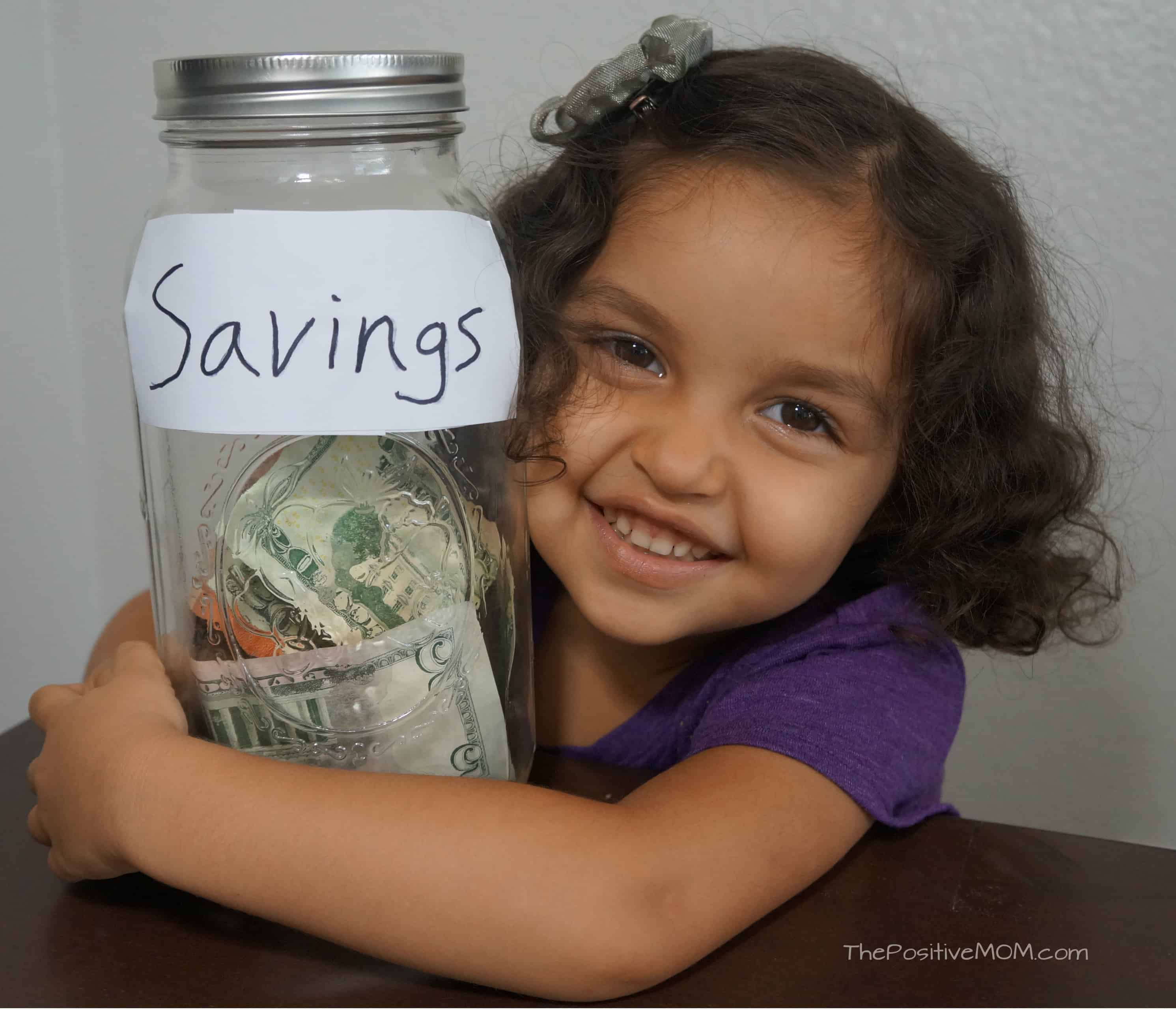
If you feel your elementary school-aged children could not possibly comprehend the concept of credit, here’s an outline I created with three basic questions and my own kid-friendly answer about credit:
What is credit? “Credit is like a report card for money. The better you are at paying others, the higher the grade you’re going to get. Your final grade is called a ‘credit score.'”
Why is credit important? “A library card gives you access to borrowing books, a high credit score gives you access to borrowing money. If you are not good at returning your books on time, you may not check out any more and have penalties, and you may not be able to get another library card at that library or anywhere else. Not having access to what you need can affect your performance and lifestyle.”
How do I know my credit score? “Just like you can ask your teacher about your grade or can get notified when your library books are due, you can inquire about your credit score or set up notifications to know when it changes. Let’s check my credit score, so you can see how it works!”
How do you talk to your kids about credit? If they grow up to be too credit-averse, they will not create a positive credit history, and if they develop the desire to misuse, overuse, and abuse credit, they will be in financial trouble. Share your approach with us below!
For more information, visit the Chase Slate website, and be sure to follow along with #ChaseSlate on Facebook, Twitter, or Instagram.
[ela]


Nadia
Thursday 7th of September 2017
Excellent points! And I love how you implemented the proverb about planting a tree. Very applicable! I fully support the idea of educating children about credit as early as possible in a way they will understand and keep on teaching them what to do with money as they grow older. To be honest, a lot of adults would benefit from this read too. Nadia
Yeimi Santana
Wednesday 23rd of August 2017
Thanks for sharing this valuable information. Teaching our children about finances will help them to achieve better financial outcomes in their young and adult lives, and the questions you addressed in this post are so helpful for setting up the foundation.
MashaB
Monday 21st of August 2017
Muchas gracias por compartir, muchas veces se nos olvida la importancia de sensibilizarlos a temprana edad sobre temas financieros. Nos soprenderemos de lo mucho que aprenden y entienden a su modo el concepto como ahorro o crédito
Amber
Monday 21st of August 2017
Knowing how to manage money, and learning how to control it (as opposed to letting it control you) is HUGE. Learning from an early age is super important too!
Alex Tabar
Friday 18th of August 2017
This is a VERY IMPORTANT subject. I never heard about credit and the importance of it, until I moved to USA almost 10 years ago. In the Dominican Republic, this is not a subject that most people talk about. I wish I've known more about it, while I was growing up. Thank you for sharing! :)